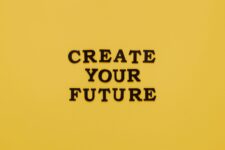If you’ve been faced with the career change puzzle, that is, considering a career change but being unsure what you should do, you’re not alone. In fact, the average person changes careers 5-7 times in their life.
While the prospect of a new career can be exciting, the transition can be daunting. Many people struggle with knowing where to begin or how to assess their skills, talents, interests, and values to determine the right career path for them. I know I certainly did.
Fortunately, there are ways to approach a career change that can make the process less overwhelming and more manageable. One of the most important steps is to assess your skills, interests, and values to determine whether a new career path would be a good fit for you.
Think of this process like a puzzle. Each piece represents a different aspect of who you are as a person and a professional. By piecing together these elements, you can create a clearer picture of what your ideal career might look like.
So, how do you start putting the pieces together? Below are some steps to guide you.
Step 1: Assess your Natural Abilities and Talents
The first step in the career change puzzle is discovering your natural talents and abilities. This is one of the most important pieces of the puzzle.
For some this is obvious: you were a child prodigy on the piano and a natural musician. For others, like me, it isn’t always so obvious. I seemed to be fairly good at a number of things, but not particularly brilliant at any one thing. I ended up managing a financial center in Manhattan but was unhappy and dreaded going to work every day. It would be fair to say I hated my job even though I was successful at it. It wasn’t until I discovered I had a hidden talent for life coaching and speaking that I found my path in life. I wish I had known about this sooner as it would have saved me years of frustration in the wrong job!
Thankfully, we now have the tools to help you discover your hidden talents and abilities with the objective, extremely accurate career assessment tests in the Career Change Kit so you don’t have to struggle anymore. In three hours you will have your unique results and report to hand. The more you know about your natural abilities, the easier it is to make the best career choice.
If you’d like to learn more about the Career Change Kit and the ideal career tests and assessments included, watch this video.
Step 2. Assess Your Skills and Interests
The second step in the career change puzzle is to assess your skills and interests. Your skills are the abilities you have developed through education, work experience, and personal interests, such as language skills. Start by taking stock of your skills and experience. What are you good at? Think beyond the technical skills required for your current job and consider the soft skills you possess as well. For example, do you have strong communication skills, leadership abilities, or a knack for problem-solving?
To determine your skills, consider the following questions:
- What tasks or activities do you excel at?
- What skills have you gained through your education and work experience?
- Which skills do you enjoy using and find fulfilling?
To get a comprehensive understanding of your skills, make a list of everything that comes to mind. Once you’ve identified your skills, think about how they might translate to a new career path. Can you leverage your existing skills in a different industry or job function? Are there skills you need to develop to pursue a new career?
Your interests are the things you enjoy doing or learning about outside of work. While your interests don’t necessarily have to align with your career, finding a career that allows you to pursue your passions can make work feel less like work.
To identify your interests, consider the following:
- What activities do you enjoy doing in your free time?
- What hobbies or interests do you have that you could potentially turn into a business or career?
- Which topics or industries do you find interesting and enjoyable to learn about?
- What magazines do you enjoy reading?
Once you have identified your interests, it’s time to discover your hidden motivators and values.
Step 3: Determine Your Values and Passions
The third step in the career change puzzle is to understand your values. Your values are the principles or beliefs that guide your decision-making. Knowing your values is important when considering a new career because it can help you determine whether a particular career aligns with your personal beliefs and goals.
Your core values are often what is most important to you. They can guide your decisions and priorities in your personal and professional life. For example, if you value work-life balance, you might prioritize careers that offer flexible schedules or remote work options.
Take some time to consider what matters most to you in your career as well as in your ideal life. Do you value financial stability, job security, or social impact? Do you want to work for a company with a strong mission? Knowing your values can help you identify career paths that align with your personal and professional goals and beliefs.
To determine your values and passions, consider the following:
- What motivates you to do your best work?
- What do you want to achieve in your career?
- Which values are important to you in a work environment (e.g. teamwork, autonomy, work-life balance)?
- What would you do if you had all the money you ever needed?
- What have been the peak experiences in your life?
Once you have identified your values, research companies and industries that share those values. A company that aligns with your values can be a great fit for your new career.
We use another career assessment test to determine both your hidden motivators as well as your core values, personality style, and behavior. This is all included in the Career Change Kit. You can also find many helpful exercises in Coach Yourself to a New Career.
Step 4: Research Potential Career Paths
Once you’ve identified your abilities, skills, interests, and values, the next step in the career change puzzle is to research potential career paths. Look for industries, job functions, or specific roles that align with your puzzle pieces. Use online resources like LinkedIn or Glassdoor to explore different career paths, and reach out to professionals in those fields for informational interviews.
During these conversations, ask questions about the day-to-day responsibilities of the job, required skills and qualifications, and potential career growth opportunities. You might also ask about any challenges or drawbacks associated with the career path.
Explore possible new careers further by:
- Reading job descriptions to understand the day-to-day responsibilities and requirements of the job.
- Researching the education, training, and experience required to succeed in the field.
- Networking with professionals in the field to gain insights and advice.
- Volunteering or interning to gain practical experience.
As you explore potential careers, pay attention to how they align with your natural talents and abilities, interests, and values. The ideal career will align with all these elements and is highly likely to be both fulfilling and sustainable.
Before making a full career change, it can be helpful to dip your toes in the water and gain some hands-on experience in the new field. Consider taking a class, volunteering, or freelancing in your desired career path to get a sense of the work and the industry. This can also help you build your network and gain valuable experience to showcase on your resume.
I kept my day job at the bank while taking coach training courses in the evening and working with my first clients while making the transition. I was busy during this time but also energized because I had finally found my passion!
Now that I’ve found my ideal career as a life coach, author, and motivational speaker, I never want to retire and I look forward to going to work. No more hitting the snooze alarm for me!
Step 5: Create a Career Transition Plan
Now that you have a clear picture of your abilities, skills, interests, and values, the last step in the career change puzzle is to plan your career change. Start by researching potential career paths that align with your unique combination of strengths, passions, and priorities. Look for job postings, industry associations, and networking events to help you gain insights into your chosen field.
Next, create an action plan outlining the steps you need to take to reach your career goals. This may include updating your resume and LinkedIn profile, networking with professionals in your desired field, taking courses or certifications, and gaining relevant experience through internships or volunteering.
Remember to stay flexible and open to new opportunities as you navigate your career change journey.
It’s okay to modify your plan as you go along, and to seek guidance and support from mentors, career coaches, and trusted friends and family members.
Making a successful career change requires planning and self-reflection. By taking the time to assess your abilities, skills, interests, and values, you can create a clear picture of your ideal career path and take concrete steps toward achieving your dream job. Don’t be afraid to take risks and pursue your passions – with the right mindset you can unlock a world of new opportunities and find the fulfilling career you desire!
If you’re serious about making a career change and want to gain even deeper insights into your unique strengths and motivations, consider taking our Career Change Kit. Our state-of-the-art computerized career assessment tests can help you identify your hidden motivators, values, and natural talents and abilities, giving you a more comprehensive understanding of your career path options. The kit includes a range of assessments, including personality tests, values assessments, and skill inventories, as well as personalized coaching and guidance from experienced career professionals.
With the Career Change Kit, you can gain a clearer picture of your career aspirations and create a solid plan for achieving your goals. Don’t miss out on this powerful tool. Order your Career Change Kit today and take the first step toward your dream career!
Helpful resources to navigate the career change puzzle:
- Coach Yourself to a New Career by Talane Miedaner
- The Career Change Kit with the online computerized career assessments to help you determine your hidden talents and abilities, your personality style and behavior, your hidden motivators and your ideal working environment, and much more.







